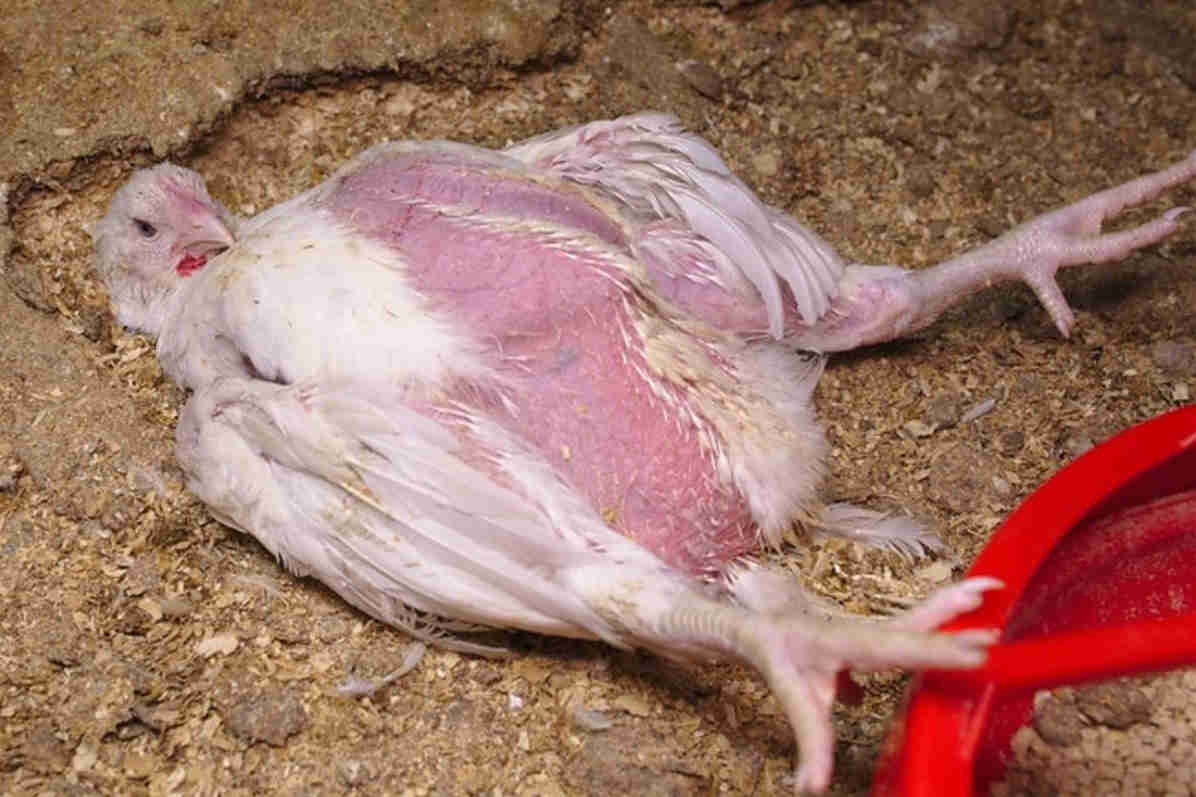Raising backyard chickens can be exciting. Although, there’s one thing inevitable in life: Death. No matter how well we care for them, we always end up with the thought: “Why are my chickens dying?” So today, we’re looking at some of the causes of chicken death, its treatment and prevention, and tips.
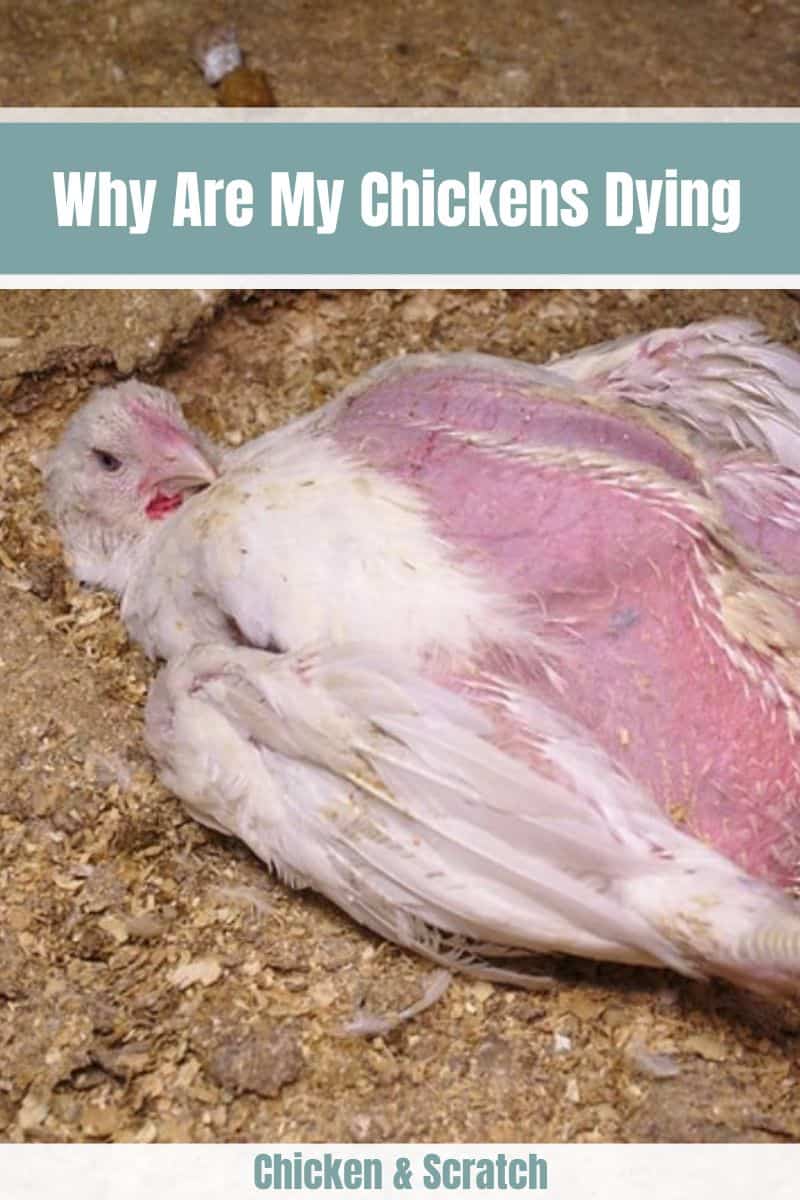
Neoplasia
In a recent study, one of the top causes of chicken death is neoplasia or tumor, including lymphoma. The origin may be from a viral or non-viral infection. And one well-known disease that causes it is Marek’s disease virus (MDV) or Fowl Paralysis, a viral type.
MDV is predominant in young birds aged between 8 and 20 weeks since they are vulnerable to infection. It attacks the host’s nerve until progressive paralysis occurs in the limbs, neck, or wings. Aside from it, it can also affect the internal organs, causing digestive dysfunction and anemia.
Infectious Causes of Chicken Death
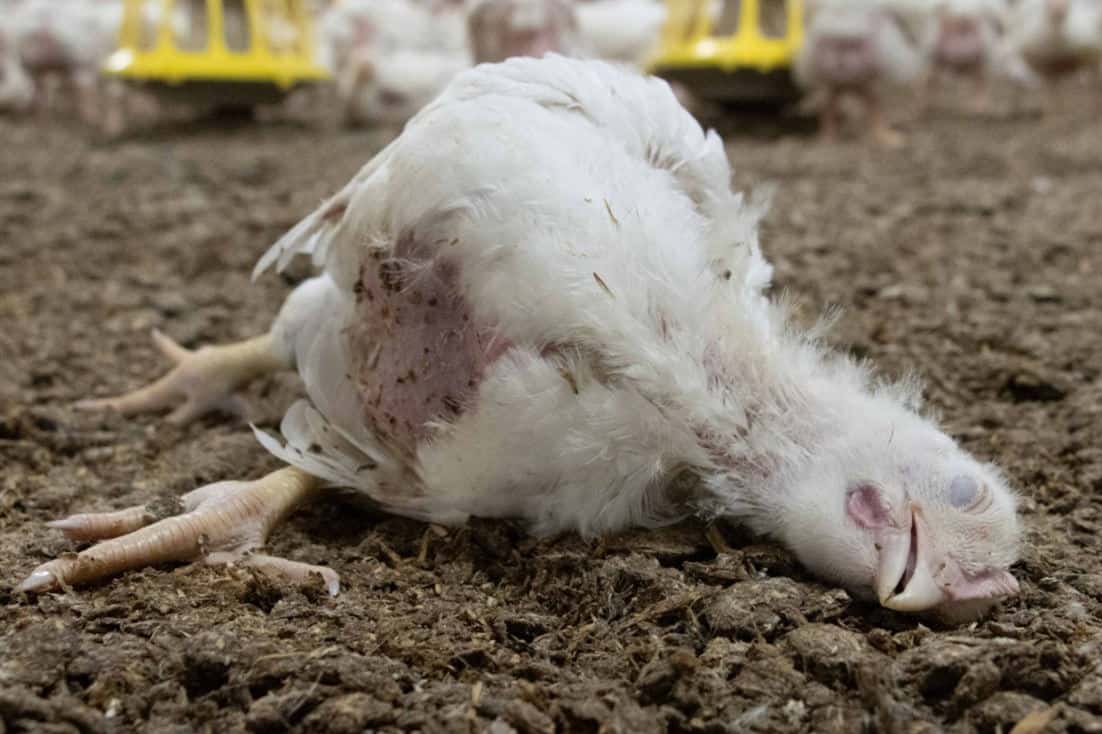
There are four types of infectious diseases that occur in chickens:
A. Bacterial Diseases
Like a human body, chickens also have good and bad bacteria in their microbiome. Good bacterias help chickens digest food and produce nutrients unavailable in the system. But, a bacteria imbalance can cause diseases, affecting the whole flock.
Among the most common is E.coli in Colibacillosis, which invades the respiratory system and gastrointestinal (GI) tract. In the acute stage, chickens may experience listlessness or, worst, sudden death. Meanwhile, in chronic infection, debilitation and growth retardation are very evident.
B. Viral Diseases
Highly Pathogenic Avian Influenza (HPAI) is every chicken owner’s worst nightmare. It is contagious and can severely impact a flock with a high mortality rate. HPAI can cause various symptoms affecting appetite, coordination, and energy.
Aside from HPAI, the virulent Newcastle disease (vND) is also something to watch out for. It can affect the vital organs of the flock, causing instant death without showing any clinical signs.
Sadly, although vaccines exist for both HPAI and vND, managing these diseases in large flocks can be challenging.
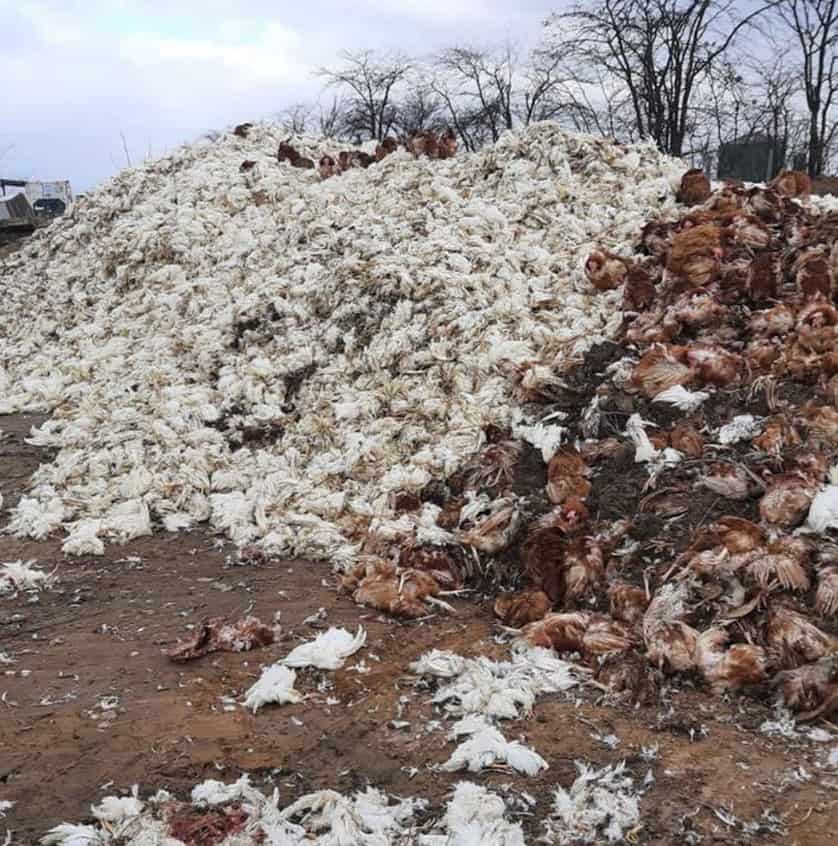
C. Parasitic Diseases
We all know how birds love to peck whatever they see on the floor. And although they are fun to watch, it is unsettling to find they ingested parasite eggs.
Among the prevalent type of parasitic disease is Coccidiosis. It feasts on small flocks and loves to live inside the intestinal tract. Chickens can get the parasite from contaminated food, water, and litter. Or, in short, an unkept environment.
Heavily infected birds might manifest with ruffled feathers, diarrhea with bleeding, and dehydration.
D. Fungal Diseases
The fungal diseases in chickens can affect two vital systems: the respiratory and GI tract. Fungi develop from moldy food/ hay, wet weather, and close contact with infected birds.
Among the most common fungal conditions are Aspergillosis and Candidiasis. The former usually attacks the respiratory system, while the latter is more on the intestinal tract. As a result, you can expect more debilitating signs from chickens with Aspergillosis. And as of 2022, there is still no cure for this disease.
Non-Infectious Causes of Chicken Death
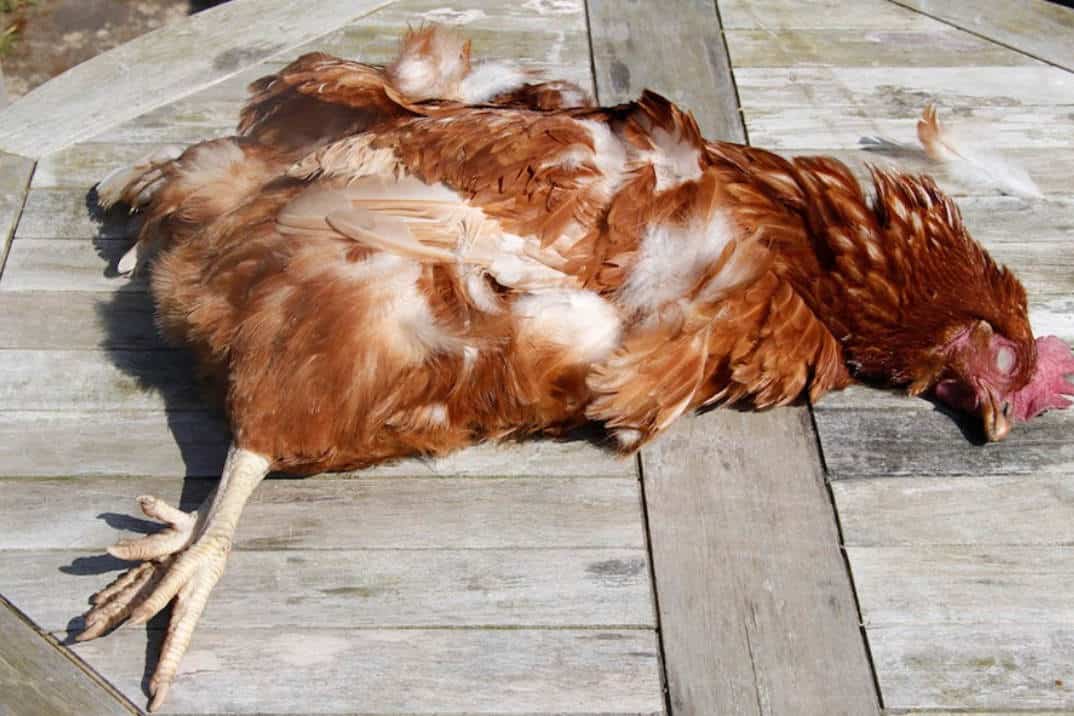
Non-infectious diseases are mostly preventable and less severe than infectious diseases. Here are four causes you might encounter:
A. Nutritional and Management Diseases
Turning a blind eye to the nutritional needs of your flock can result in a failed investment. Well, that is if you’re raising broilers or egg-laying hens. Poor flock care can cause malnutrition, thirst, and dehydration – resulting in death.
Some signs you can expect from food mismanagement include:
- Reduced energy and muscle weakness
- Presence of skin lesions
- Feather abnormalities
- Weak bones
- Decreased egg production
B. General Noninfectious Diseases
Chickens can be diagnosed with systemic diseases due to dietary issues or dirty environments. The most common systemic disease detected in chickens is fatty liver hemorrhagic syndrome (FLHS). Then, followed by cardiovascular problems like heart attacks.
FLHS causes sudden death in chicken that is actively reproducing. The causes? Excessive energy intake with restricted exercise. Layers affected can show lethargy, decreased appetite, and puffed feathers.
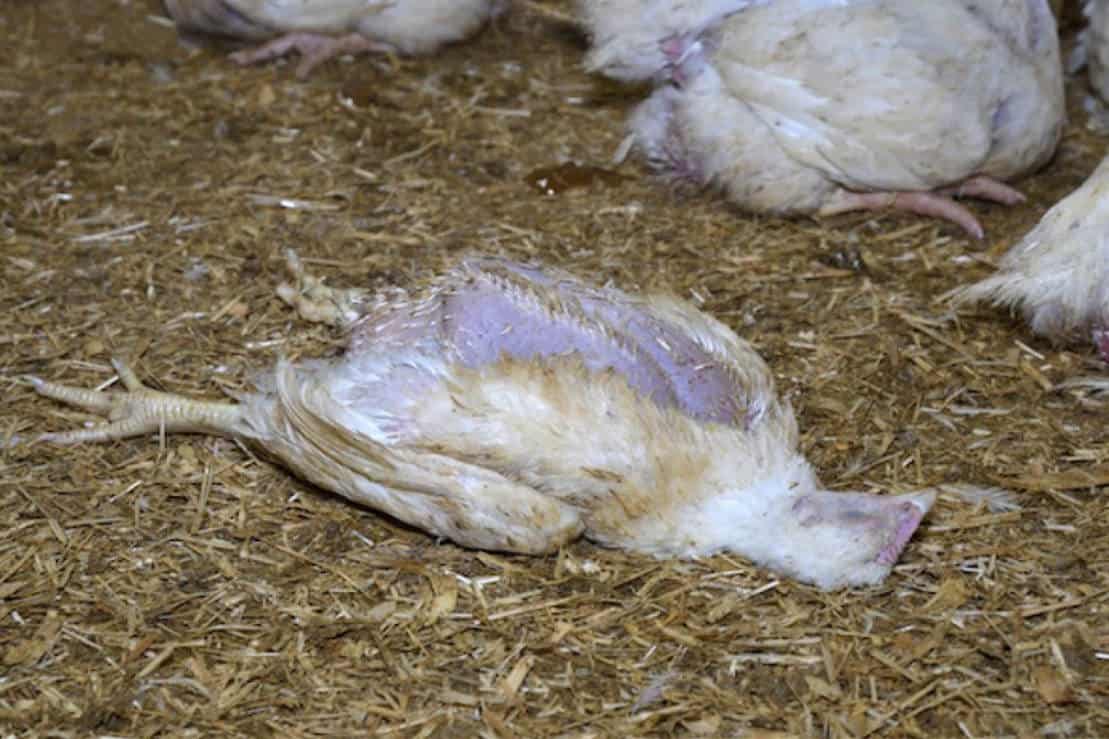
C. Toxic Diseases
Toxic poisoning in chickens happens when their environment contains prohibited chemicals. One typical example is the careless application of rodenticides with anticoagulants.
Anticoagulants decrease vitamin K in the body, resulting in internal bleeding. That’s why you won’t see any signs right away. Other signals to look at includes weakness, decreased appetite, and lethargy. In the worst cases, you may find the chicken dead without symptoms.
D. Developmental Diseases
Developmental abnormalities are the least expected causes of death in chickens. Among the cases listed in the US, unilateral renal agenesis (URA) is the most common.
URA means the complete absence of one kidney. It may result from a developmental abnormality, and it requires the remaining kidney to compensate for the loss of the other. Over time, this can result in dysfunction leading to mortality.
Other developmental causes you might encounter are:
- Persistent cystic right oviducts
- GI abnormalities
- Musculoskeletal malformations
Environmental Factors
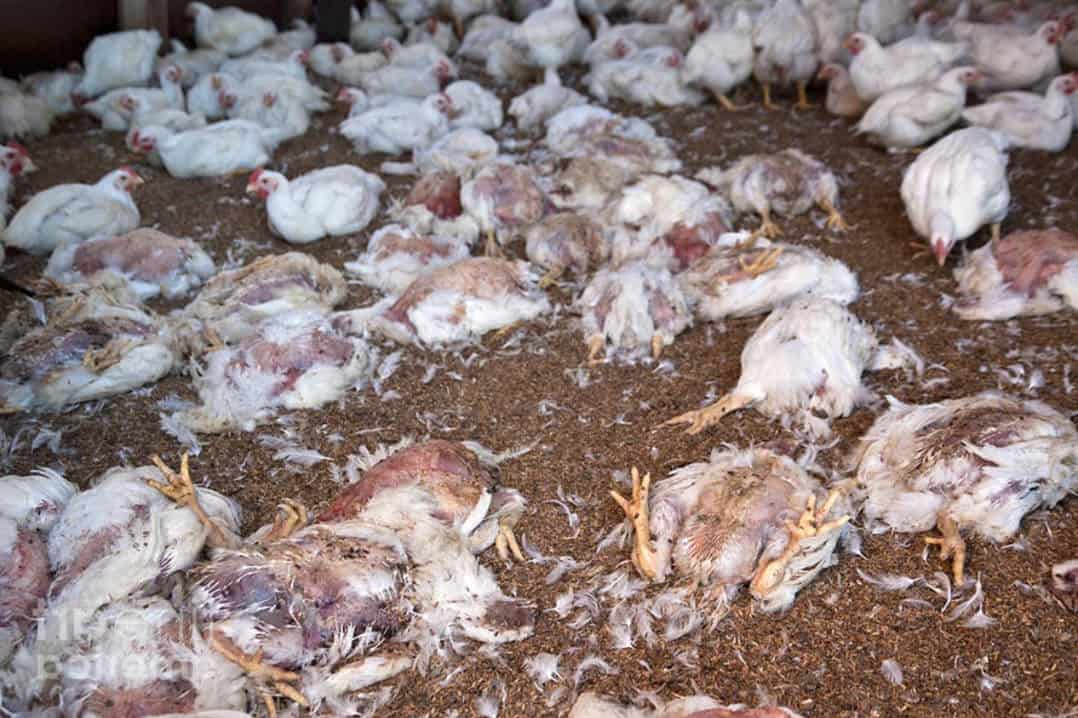
An unclean environment is the root cause of many chicken diseases. It attributes to the formation of fungi, bacteria, and parasites.
A. Poor Sanitation
Like pets, raising a chicken is a commitment that you need to attend to every day. They need fresh feeds, clean water, and a clean coop. If those are left unfollowed, unwanted organisms like parasites may take shelter in your flock and cause mass mortality.
Aside from this, uncleaned chicken droppings can encourage the formation of bacteria. It causes the coop to smell like intense ammonia that can affect the chicken’s eyes and breathing. So be sure to make daily rounds if you want a bountiful harvest.
B. Stress and Overcrowding
If humans feel stressed in hot, crowded places, so do chickens. Chickens follow a metabolic mechanism to maintain a homeostatic internal environment. But this is hard to achieve for commercially farmed chickens.
Overcrowding the flock can cause restricted exercise, disturbed sleep, and less access to food and water. In time, their ability to produce eggs will be affected and might cause death to active hens.
Predators
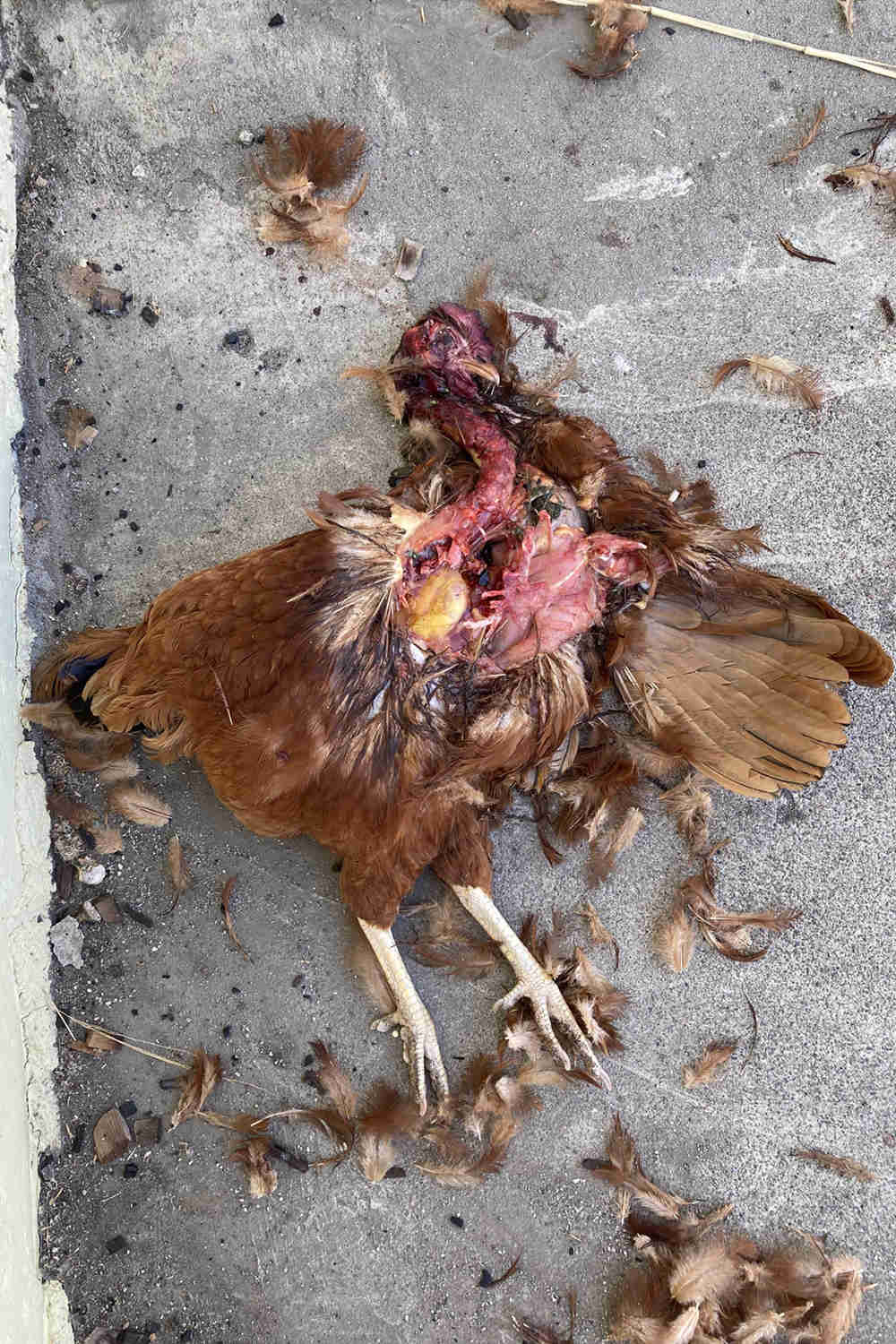
Giving the chickens the freedom to run and enjoy the greenery lessens their stress and promotes exercise. But there’s always a villain that cuts the joy out of others’ happiness – we mean predators!
Here are a few possible predators and clues of their attack:
| Possible Predator | Attack Style |
| Hawk | It kills one or two birds, with the entire body eaten on-site. |
| Fox and Coyote | Takes one bird and eats at a distance; scattered feathers on-site. |
| Opossum | Bite marks on the breast or thigh, the whole abdomen is eaten. |
| Domestic cat | Target chicks and eats the torso except for the wings and feet. |
| Raccoon | Eaten breasts and entrails; the head is missing. |
If you thought of chicken tunnels to protect your chickens, then sorry to burst your bubbles. Chicken wires hold chickens but do not exclude predators. To protect your chicken, you can build a predator-proof coop like in this video:
Aging and Natural Causes
Chickens can reach up to 10 years, but generally, they live between three to seven years. An example of a breed with a long lifespan is Rhode Island Reds which reaches eight years. Contrarily, high-production hybrids or those selected with specific traits have shorter lifespans.
Some natural changes you’ll find in chickens as they age are:
- Decreased physical activity
- Accumulation of excessive fat
- Lay fewer eggs but bigger
- Heavy and solid body
Aside from their physical appearance, older chickens develop ailments as they age. A few examples are fatty liver, osteoporosis, and heart failure, leading to death.
Quick Tips to Avoid Spreading Disease Into Your Flock
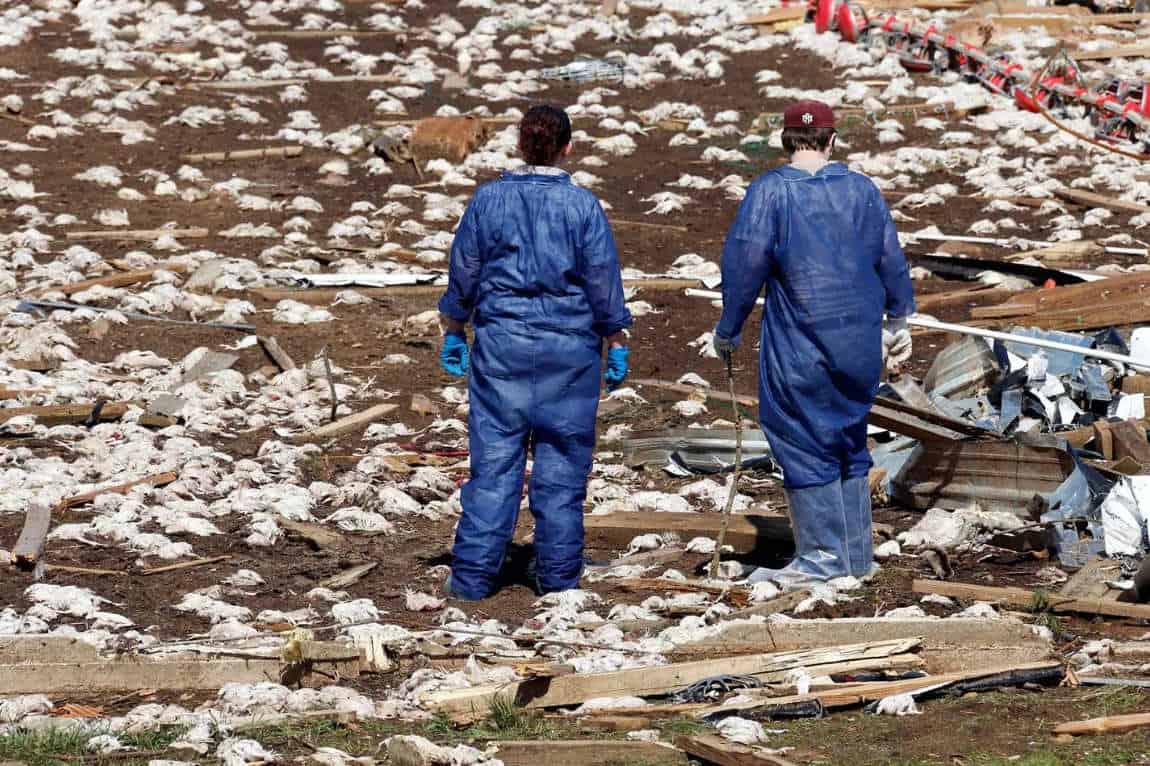
As the saying goes: “prevention is better than cure.” This is particularly true when managing a large flock. So, here are some tips to avoid the spread of infectious diseases.
- Isolate: anything living is a host to pathogenic agents. Quarantine those infected, and don’t use the same clothes if you’re attending to your healthy chickens.
- Sanitize: hot water with detergent makes a great sanitizing agent. Remove as much organic matter in the coop using a brush and scrape stubborn dirt.
- Nutrition: the most important but forgotten. A well-balanced diet can prevent disease occurrence. Always provide clean water between 40° to 70° and fresh feeds for your chickens.
- Flock Management: invest only in healthy stock. Keep different ages of birds separated and follow welfare practices.
When to Consult with a Vet
Getting a professional diagnosis and treatment is better than letting your flock suffer. Of course, nobody wants to go home with a coop full of deceased chickens. So here are some emergency signs to look for:
- Problems with breathing
- Ill birds that are distant from the flock
- Discolored comb
- No appetite for over 24 hours
- Serious physical injuries
- Presence of maggots
- Exposure to toxins
- Difficulty passing an egg or droppings
If one or two of these symptoms are present, immediately bring the chicken to the nearest vet to have it examined.
Take Away
Losing a chicken can be alarming, especially if you have no idea what caused it. But we hope you found the possible answer to why your chickens are dying.
Learning what causes mortality can help you with the necessary actions. Thus, preventing it from happening again. So go ahead, and check the coop and your chickens’ state.

Joseph Hudson has been raising chickens for over 15 years. In 2018, he completed the Agriculture & Natural Resources program at Mt. San Antonio College. He currently raises over 1400 chickens on his 7.5-hectare farm. He keeps sharing his experience on raising healthy and happy chickens on Chicken Scratch The Foundry.
